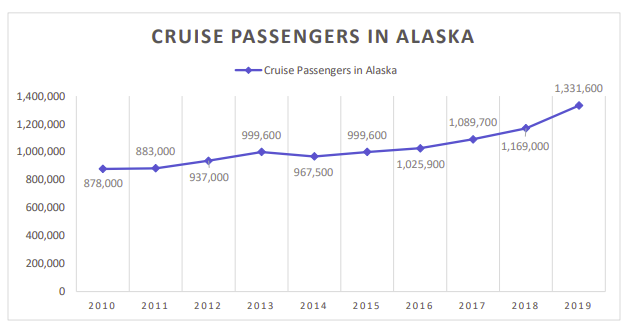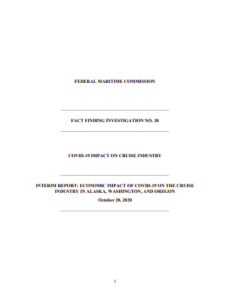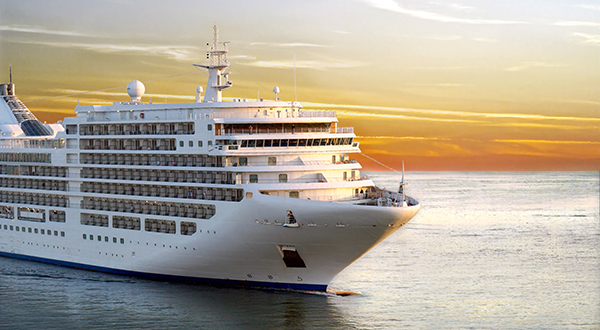Alaska is the most hardly hit US nation by the cost of canceled 2020 cruise season, according to a new report by Commissioner Louis Sola which examines the economic impact on Alaskan citizens and tourism related businesses.
The latest Fact Finding 30 Interim Report examines the economic impact of COVID-19 on the cruise industry in 16 Alaskan ports as well as ports in Seattle and Astoria, Oregon.
Passenger cruising is a vital part of the Alaskan tourism business and the loss of an entire cruise season has led to the loss of revenue for a disproportionate number of Alaskans,
…said Commissioner Sola.
Alaska’s economy rests on three key industries: energy, fishing, and tourism. The last category has been a growth industry for Alaska, with the number of visitors increasing 45% from 1.5 million in 2010 to 2.2 million in 2019. Pleasure cruising is an important part of the tourism sector, in 2019, 1.3 million people traveled on cruise ships.
The difference between Alaska and other states is that in many locations, the cruise industry may be the only economic driver, the report stresses.

With the suspension of the cruise season, the economic activity of 1.3 million was wiped out of the Alaskan economy for the year. Under the best of circumstances and in any other state, there would be no disguising the consequences of losing that much revenue. In Alaska, in the context of the cruise industry, the consequences are greatly exacerbated,
…said Commissioner Sola.
Another economic consequence of the loss of the 2020 Alaska cruise season is the missed direct contribution the cruise companies make to the state. In addition to providing services to tourists, cruise companies operating in Alaska base thousands of crew members in the state. Those seasonal residents pay rent, shop in grocery stores, eat in restaurants, and purchase services. Furthermore, cruise lines and their subsidiaries, spend close to $300 million in procuring goods and services from Alaska-based companies.
If a ship does not call, especially at some of the smaller cruise focused ports in Alaska, people do not make money. If there is no cruise ship in port, there is no work for the longshoremen. If there is no cruise ship in port, no one is shopping in local businesses or eating in local restaurants. If there is no cruise ship in port, landside tour companies have no clients,
…explained Commissioner Sola.
Meanwhile, this condition creates adverse impacts for the tied Washington and Oregon. The Port of Seattle is the homeport for many cruise ships and more than one million individuals fly in and out of the Seattle-Tacoma International Airport to take cruise voyages. The hotel, ground transportation, and tourism sectors have all been affected by the cessation of cruise operations in general and the suspension of the Alaska season in particular. Similarly, the Port of Astoria, Oregon has weathered an economic impact as a result of lost cruise business.
The Alaska cruise season is short, lasting approximately only five months. While the 2020 season is lost, there is hope for the 2021 season. Companies and port authorities are focused on the steps necessary to safely return to full operations and to provide cruise customers with the assurances necessary to be confident again boarding a vessel.
…said Commissioner Sola.
Explore more herebelow:































































